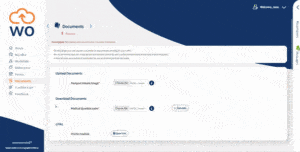The COVID-19 pandemic has forced HR teams to make some drastic changes to the way they operate.
Virtually overnight, teams have had to adapt to remote working and the challenges of restricted access to a central office.
But with restrictions easing, there comes the difficult task of deciding what should become the ‘new normal’ for HR and employee onboarding.
Here’s a look at some of the issues:
Temporary measures become permanent
Many of the measures introduced as a temporary ‘fix’ will become permanent solutions. A recent survey found more than a quarter (26%) of HR managers at UK companies are planning to ‘significantly increase’ remote working.
This means that more HR teams will be working remotely as well as the employees and roles that they manage. To handle this shift is going to require a fundamental rethink of how HR works.
Reliance on remote onboarding
One ‘new normal’ for HR teams is going to be an increased reliance on remote onboarding. This means moving away from many of the traditional office-based methods of handling incoming hires; paper forms, posted documents and Excel spreadsheets.
To manage with a dispersed team, the hiring process needs to make use of digital tools and cloud-based processes. It has to allow onboarding to be managed and monitor from wherever a person has an online connection.
Increased focus on engagement
With more roles being home-based, HR teams will need to find ways to engage with new employees. They need to keep them motivated and feeling a vital part of the organisation and this starts with onboarding; adapting processes for remote roles.
Typical methods to achieve this include increased use of video chats with team members to help build bonds. Many businesses are using virtual tea breaks to recreate the informal social interactions that take place in an office.
Reviewing wellbeing strategies
As more roles are handled remotely, HR teams need to consider the long-term health and well-being implications. While some employees may welcome the switch, for others it’s liable to cause feelings of frustration, loneliness and isolation.
Recent research has indicated that 24% of employees are concerned about the wellbeing impact of a permanent change to home working. For many companies, tackling these issues means exploring new ideas. They could look at new best practice such as mental health first aiders and offering free counselling sessions.
Amending policies and paperwork
Company policies and documentation need to reviewed to ensure that it’s relevant to remote roles. From contracts that set out working hours and conditions for home workers; to health and safety policies that cover home offices.
It also means rethinking general company literature such as the background information that is sent out to new starters. Brochures and documents that focus on the positives of the office environment may need to be adapted for remote roles.
Summary: Changing for the better
The Covid-19 pandemic has rapidly accelerated many of the trends that were already taking place within HR. While sudden change is not ideal, it has helped many organisations to make the transition to remote ways of working.
By understanding the issues and harnessing the benefits, it provides HR professionals with a vital role in developing stronger, more productive and agile workforces.




